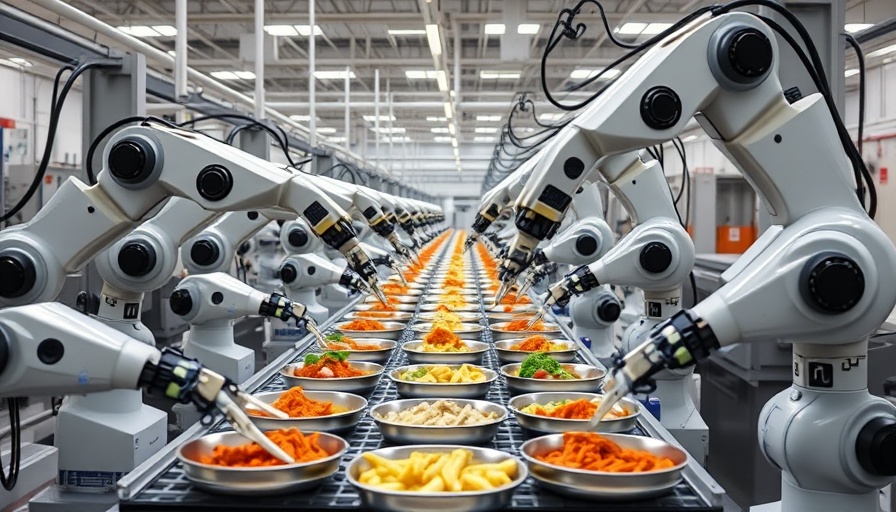
How Chef Robotics Pivoted for Success
In a world brimming with failed food tech startups, Chef Robotics has not only survived but thrived, embodying the essence of resilience and innovation in the face of adversity. Founded by Rajat Bhageria, the company began its journey overwhelmed by challenges, including the critical grasping problem essential in culinary robotics.
The Grasping Problem: A Critical Challenge
Bhageria, an alumnus of UPenn's GRASP Lab, faced a significant hurdle: teaching robots to handle delicate ingredients without damaging them. The failure of many previous food robotics enterprises often stemmed from their inability to solve this core issue. Robotic chefs need to do far more than press buttons; they require the dexterity to pick and place a myriad of ingredients with precision. Such capabilities are still under development, highlighting a gap in necessary training data.
Choosing the Right Customers
Initially, Chef Robotics aimed to replicate traditional meal assembly lines in fast casual restaurants, a massive sector heavily impacted by labor shortages. However, despite having secured multimillion-dollar contracts, Bhageria realized that providing what these clients wanted was unattainable due to technical limitations. Rather than persist with existing customers who had a rigid vision, he pivoted to seek out new customers willing to explore creative solutions. This decision became a turning point for the startup.
Finding New Paths to Innovation
Moving away from his original plan was painful, but Bhageria found liberation in exploring alternate avenues. The company began focusing on partnerships with businesses that offered more flexibility in their ingredient use and were interested in collaborative research. This significant shift not only eased the pressure of meeting previous demands but also opened doors to innovative possibilities that more rigid businesses would never consider.
The Power of Strategic Refusal
By turning away from potential revenue streams, Chef Robotics demonstrated a critical lesson for other small businesses: sometimes, saying no is just as powerful as saying yes. This strategy enabled Bhageria to adapt and focus their resources on developing a viable product, which ultimately led to a successful $23 million Series A funding round.
Conclusion: Embracing Change as a Key to Success
Chef Robotics’ journey showcases the importance of adaptability, strategic refusal, and aligning products with market needs. For small and medium-sized business owners, understanding that sometimes the best way to advance is to take a step back can transform potential failure into unprecedented success. For those looking to integrate AI into their operations, let Chef Robotics serve as a powerful example of how embracing change can yield positive results.
 Add Row
Add Row  Add
Add 










 Add Row
Add Row  Add
Add 

Write A Comment